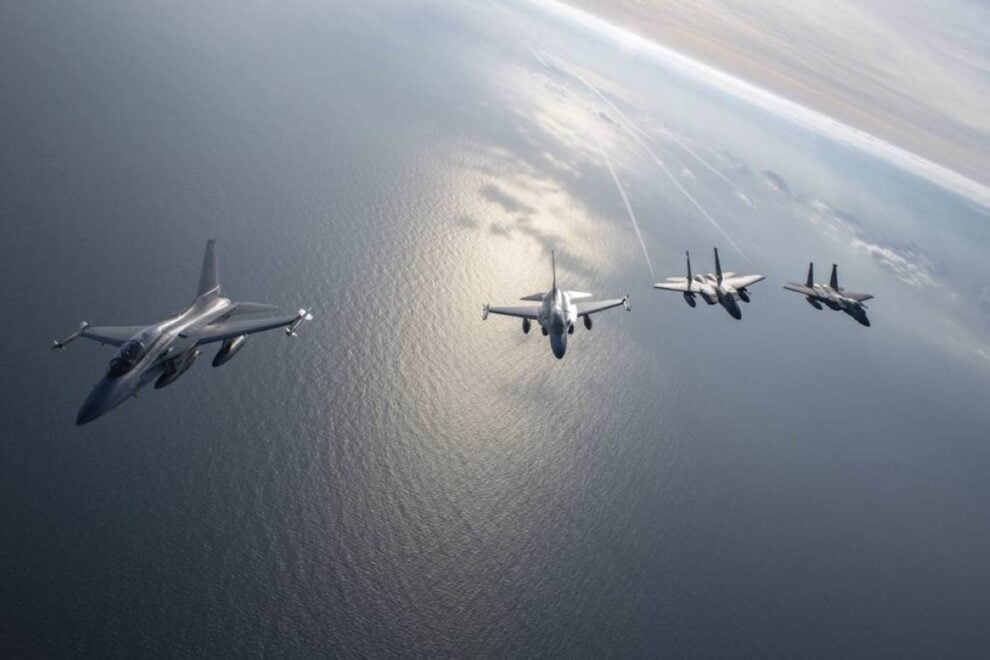President Ferdinand Marcos Jr. has raised the ante in the Philippines’ face-off with China after noting that the situation in the West Philippine Sea “has become more dire than it was before.”
For three days beginning last Tuesday, the Philippines and the United States launched joint air and maritime patrols in the West Philippine Sea to bolster the interoperability of the two allies’ military forces.
But more than interoperability, the joint patrols are Manila’s strongest response by far to Beijing’s growing aggressiveness in asserting its territorial claims in the South China Sea.
Days earlier, the President met with Chinese President Xi Jinping on the sidelines of the Asia-Pacific Economic Cooperation summit in San Francisco, and the two agreed that the longstanding dispute in the South China Sea “should not be the defining element” of their relationship.
But in his brief stopover in Honolulu on his way home from San Francisco, the President was far less genial, accusing China of resorting to “false narratives,” “coercive tactics” and “dangerous maneuvers” in justifying its incursions into Philippine waters.
He also said the Asian superpower has been converting into military facilities atolls and islets in the West Philippine Sea that were close to the country’s coastlines.
In the face of China’s expansionist ambitions, the President said that beyond the rhetoric, the country needs “to upgrade our defense and civilian law enforcement capabilities not only to defend ourselves, but also to become a reliable partner in promoting and guaranteeing regional security.”
The US and the Philippines have been exploring the possibility of jointly patrolling the West Philippine Sea ever since the Marcos administration began to reenergize its defense agreement with Washington. Philippine military officials had been putting off the concept, following warnings by Beijing against foreign intervention in a regional problem.
But continuing illegal and provocative actions by Chinese ships in Philippine waters have hardened Manila’s position.
The three days of joint patrols signify this new resolve. It also ratchets up tensions in the already volatile region.
The latest flash point is the derelict Philippine Navy ship, the BRP Sierra Madre, which serves as the living quarters for soldiers guarding the Ayungin Shoal.
In 1999, the BRP Sierra Madre was deliberately run aground on the shoal to prevent a Chinese takeover of Ayungin. The ship has since become a beacon of the country’s commitment to defend its sovereignty.
Chinese ships trying to thwart efforts to deliver supplies to the vessel have recently intensified their harassment tactics, firing water cannons at supply boats headed for Ayungin.
Further escalating tensions, a China Coast Guard ship and maritime militia vessel rammed a Philippine Coast Guard ship and a boat on a supply run to Ayungin.
The incidents only fired up sentiments to defend Ayungin against Chinese encroachments.
In the Senate, there are proposals to refurbish the BRP Sierra Madre into more livable quarters for the soldiers stationed at Ayungin.
A group of civilians is also planning to assemble a flotilla of 40 boats to escort the next Ayungin supply mission, in what could be a display of maritime “people power.”
The West Philippine Sea may not be the “defining element” in Philippine-Chinese relations, but it will be a key factor in shaping President Marcos’ foreign policy.
Strategic alliances
Geopolitical shifts in the Indo-Pacific resulting from China’s emergence as an economic and military giant have forced regional players like the Philippines to rely on strategic alliances to protect their territorial integrity.
The US remains as the country’s closest ally and has in the last two years deepened its commitments to strengthen our defense posture.
The Philippines is, in fact, the biggest recipient of US military assistance in the Indo-Pacific region. Since 2015, the US has delivered more than P57 billion worth of planes, armored vehicles, small arms and other military equipment, and training to the Philippines.
President Marcos said he also wants to strengthen security ties with Australia, Japan and South Korea, and other nations which share its aspiration for an international rules-based order in the region.
Alliances provide the protective shield of deterrence that the Philippines needs to stand up to China’s hegemonic aspirations.
Source : Manila Times










